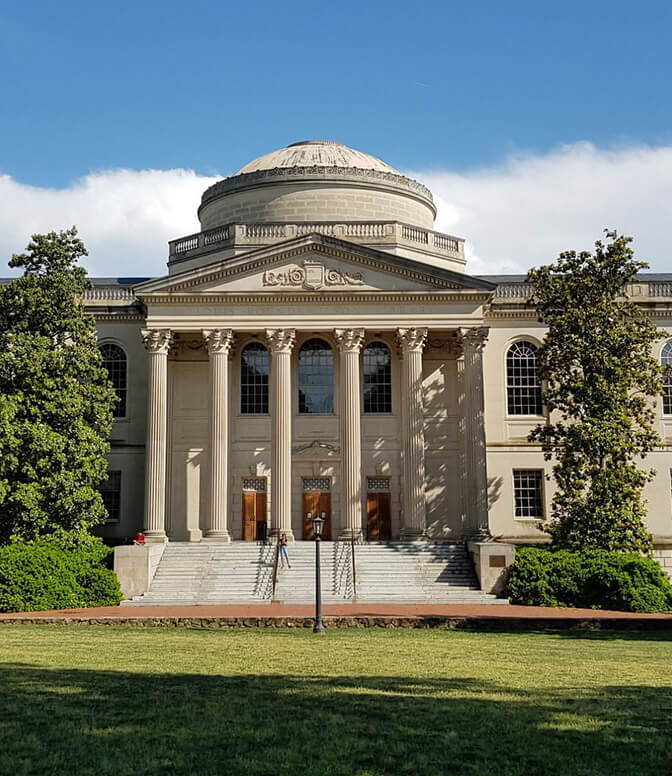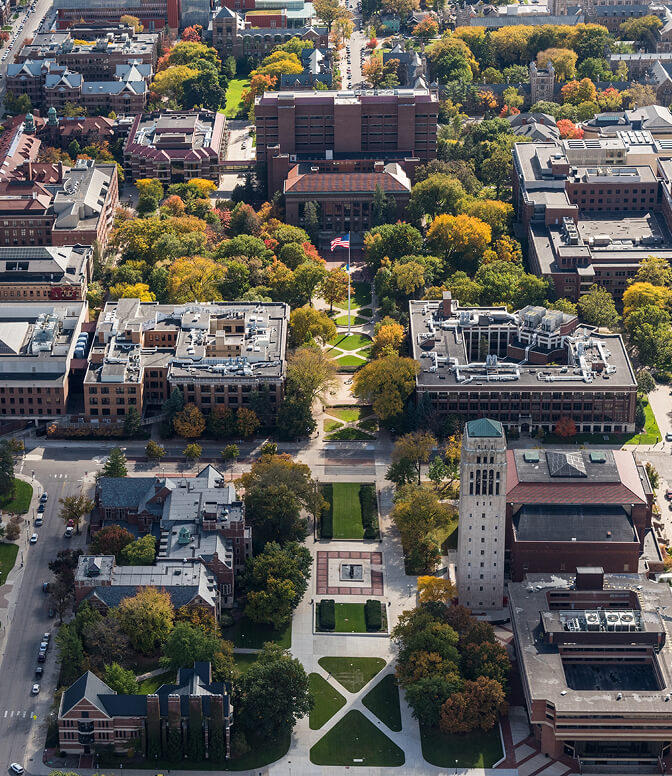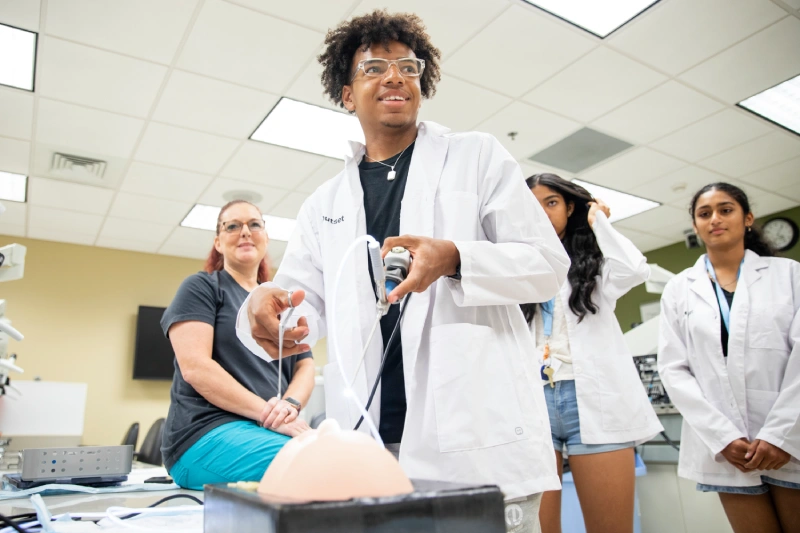Have you ever wondered what pharmacists really do? They’re not just handing out prescriptions at the drugstore—they’re vital healthcare professionals ensuring medications are used safely and effectively. Pharmacists counsel patients, collaborate with doctors on treatment plans, and play a key role in managing public health.
If you’re passionate about science and want to make a difference in people’s lives, pharmacy could be the perfect career path. But there’s more to the job than you might think. Read on to explore what it takes to become a pharmacist and why it could be a rewarding choice.
Attention to detail isn't just important—it's essential. In the journey of becoming a pharmacist, preventing medication errors requires precision. Strong communication skills help patients understand their treatment plans, and a bit of empathy fosters the trust that's vital when discussing health concerns. These qualities make pharmacists reliable partners for both patients and other healthcare professionals.
Curiosity and analytical thinking are your allies in this field. Pharmacists often collaborate with physicians to tackle complex treatment scenarios, keeping the work both challenging and meaningful. Every prescription filled and every consultation offered can enhance someone's quality of life.
If you're drawn to helping others and fascinated by the intersection of science and patient care, understanding how to become a pharmacist could be the right path for you.
What Does a Pharmacist Do?
Pharmacists are guardians of medication safety. They verify prescriptions, check dosages, and ensure medications won't cause harmful interactions. These steps are crucial for preventing complications and keeping patients safe.
Pharmacists consult with patients, educating them on how to take medications correctly, what side effects to watch for, and why adherence to treatment plans matters. Many also administer vaccinations, contributing directly to public health. Overseeing pharmacy interns and technicians keeps operations running smoothly.
Career paths are diverse. Hospital pharmacists work alongside doctors and nurses, managing complex medication regimens for seriously ill patients. Retail pharmacists serve as accessible health advisors, ready to answer community questions about medications. Others join healthcare companies, influencing drug research and regulations.
Specializations allow pharmacists to focus on areas like clinical pharmacy, oncology, pediatrics, psychiatric pharmacy, or ambulatory care. Whether collaborating on medication therapy or addressing the unique needs of children, these specializations offer avenues to deepen expertise and impact patient care.
Education and Training Requirements for Becoming a Pharmacist
So, how do you become a pharmacist? A strong foundation in biology, chemistry, physics, and math is essential. High school students aiming for a healthcare career often benefit from clubs like Science Olympiad or HOSA, which enhance teamwork and communication skills.
After high school, you'll typically spend two to four years in a pre-pharmacy undergraduate program. Important courses include general and organic chemistry, biology, microbiology, physiology, calculus, statistics, and English.
From there, admission to a Doctor of Pharmacy (PharmD) program is the next step. Accredited by the Accreditation Council for Pharmacy Education (ACPE), these programs delve into pharmacotherapy, pharmacy law, and health management, complemented by hands-on experiences in real pharmacy settings.
Licensure requires passing the North American Pharmacist Licensure Examination (NAPLEX) and the Multistate Pharmacy Jurisprudence Examination (MPJE). While advanced degrees or board certifications aren't always mandatory, they can enhance career prospects, especially in specialized fields.
How Long Does It Take to Become a Pharmacist?
Becoming a pharmacist is a journey that typically starts with focused science courses in high school, followed by two to four years of undergraduate work to meet pre-pharmacy requirements. The PharmD program itself takes four years, blending classroom instruction with clinical experiences to prepare you for patient care.
Some opt for an "0-6" program, which combines undergraduate and PharmD studies into a single six-year track. Early assurance programs can streamline the process further, potentially waiving the Pharmacy College Admission Test (PCAT). Post-PharmD residencies, lasting one to two years, offer specialization in areas like oncology or infectious diseases.
These options let you tailor your educational path, though they can affect the overall timeline. It's about finding the route that aligns best with your goals.
Skills and Qualities Needed to Become a Pharmacist
Technical expertise and personal qualities both play significant roles in pharmacy. Medication management is at the core—prescribing, dispensing, and monitoring treatments to ensure safety and effectiveness. A deep understanding of pharmacology helps in making informed decisions about drug interactions and patient-specific therapies. Staying current with medical technology, like electronic health records and specialized software, is increasingly important.
Empathy and strong communication skills build rapport with patients. Explaining complex information in understandable terms, listening to concerns, and offering reassurance are key aspects of the job. Collaboration is also vital, as pharmacists work closely with other healthcare professionals to coordinate patient care.
Adaptability is essential in a constantly evolving field. Problem-solving under pressure is part of the territory, given that medication safety is critical. Embracing lifelong learning keeps you at the forefront of new research and treatments, ensuring you provide the best possible care.
Pharmacist Typical Salary
The demand for pharmacists is growing, driven by an aging population with complex medication needs. As a key part of the healthcare system, pharmacists are increasingly sought after for their expertise in managing treatments and ensuring patient safety.
Salaries vary based on factors like location, specialization, and experience, with urban areas typically offering higher pay to match living costs. The national average salary for pharmacists is $118,968, but earnings can rise with advanced certifications or leadership roles.
Career advancement opportunities are plentiful, whether through further education, specializing in high-demand fields, or stepping into management positions. These paths not only increase earning potential but also expand your influence in patient care and the healthcare industry.
Challenges and Rewards of the Career
Long work hours and heavy workloads can be challenging, especially during times of increased demand. Administrative tasks, like navigating insurance complexities, add another layer of responsibility that requires careful balance.
Yet, the rewards are significant. Playing a direct role in patient health offers a deep sense of fulfillment. Helping someone understand their treatment or preventing a medication error can make a profound difference in their life. Pharmacists often enjoy a degree of autonomy and respect within the healthcare team, contributing to overall job satisfaction. Plus, the ever-evolving nature of medical research keeps the profession intellectually stimulating.
Alternative or Related Careers
Exploring medical careers beyond traditional pharmacy roles can open up additional opportunities. Pharmaceutical sales combine scientific knowledge with communication skills to educate healthcare providers about new medications or devices. A background in life sciences is beneficial, and obtaining a Certified National Pharmaceutical Representative (CNPR) credential can enhance your prospects.
Clinical research coordination is another path, involving the organization of trials and adherence to regulatory guidelines. Familiarity with medications and patient care makes this a natural fit for those with pharmacy experience.
Pursuing certifications in public health or healthcare administration can shift your focus toward managing programs or influencing policy. These roles allow you to make broader impacts on community health and healthcare systems.
Steps for Teens: How to Become a Pharmacist
- Volunteer in Healthcare Settings
Early exposure helps you understand the healthcare environment firsthand. Volunteer programs let you support front-desk tasks and patient services, honing your communication skills and gaining practical experience. - Focus on Relevant High School Coursework
Strengthen your foundation with classes in biology, chemistry, and math. Taking AP or honors courses can earn you college credits and deepen your scientific understanding. - Participate in Programs, Internships, or Mentorships
Joining clubs like HOSA or participating in internships provides hands-on learning and exposes you to various healthcare roles. Understanding the benefits of medical training programs can help you choose the right opportunity. - Use Educational Resources
Utilize online platforms like Coursera and Khan Academy to explore courses on pharmaceuticals, anatomy, and patient care. Reading books and staying informed about healthcare topics can further enrich your knowledge.
Explore a Pharmacy Career with Outset
Are you curious about the day-to-day life of a pharmacist? Outset offers hands-on experiences across healthcare specialties, including pharmacy. We have a pharmacy program in partnership with UNC-Chapel Hill, which has one of America’s best Pharmacy Schools. If you’re interested, apply now on our website!
Final Thoughts
Pharmacists are integral to patient care and medication safety, offering strong employment prospects and opportunities for specialization. Connecting with practicing pharmacists or academic advisors can provide clarity on educational pathways, licensure requirements, and daily responsibilities.
Starting early with internships, volunteer work, or part-time positions in pharmacy settings can give you a valuable head start. Building relationships with mentors and expanding your professional network will support you throughout your journey.
With dedication and passion, you can become a trusted resource in your community. If you're considering exploring a career in medicine, the journey ahead is both challenging and deeply rewarding.














.png)








